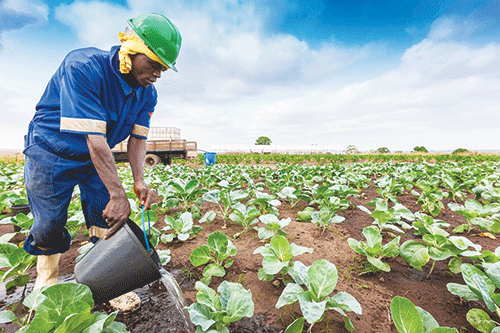Various experts who attended the recent Strategic Plan for Agriculture and Rural Statistics (SPARS) assessment findings workshop concluded that empowered farming communities and a thriving agricultural sector cannot optimally function without the dissemination of accurate statistics.
Hosted by the Food and Agriculture Organisation of the United Nations (FAO) and the Namibia Statistics Agency (NSA), the workshop dug deep into valuable assessment insights on crops, livestock, forestry, environment, fisheries and aquaculture.
Key stakeholders from the NSA and the relevant line ministries, including the ministry of agriculture, ministry of fisheries, ministry of environment, and ministry of urban and rural development, all came together to collaborate for a robust agricultural statistics’ framework for the country.
During the workshop, Qingyun Diao, FAO Representative in Namibia, highlighted the transformative impact of accurate data, empowering farmers, and driving positive change.
Abel Sindano, NSA’s economic statistics executive, stressed how the assessment findings will be instrumental in shaping a strategic plan which is tailor-made for the sector’s actual needs.
A team of FAO consultants all presented findings of the assessments carried out in the various sectors, highlighting key statistical activities relevant to the agricultural and rural sectors, and noting information and data gaps identified during their assessments.
The identified gaps are in respect of price indices, agriculture surveys, agriculture market information systems, food balance- sheets, agri-environment statistics, and quality consciousness.
The workshop concluded with a way forward to ensure that the SPARS document is completed and endorsed by national authorities, with the final draft expected to be endorsed in May 2024.
-ohembapu@nepc.com.na



